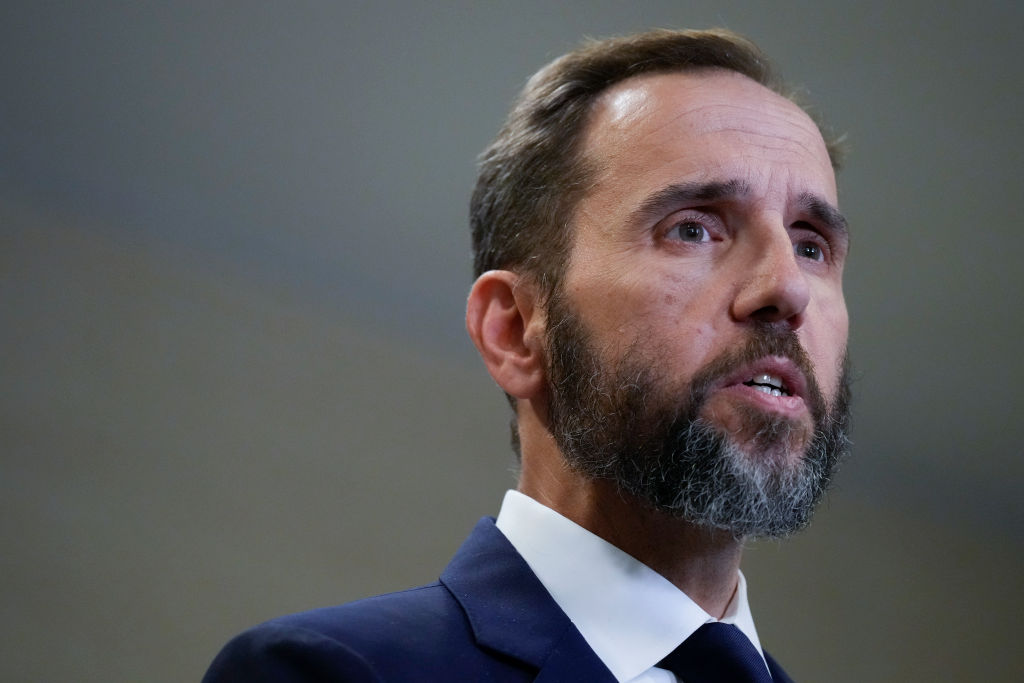Judge Chutkan Puts Trump on Notice That Jack Smith’s January 6 Case Is Alive
In a boost to the special counsel, the D.C.-based jurist rejects the 45th president’s efforts to dismiss the charges as ‘selective and vindictive.’

Judge Tanya Chutkan’s weekend rejection of President Trump’s request that his January 6 case be dismissed as “selective and vindictive” signals that Special Counsel Jack Smith’s prosecution may be down, but it’s not out — and could gain new life under a President Harris.
The ruling came fast on the heels of the Supreme Court returning to the appeals circuit for the District of Columbia the case of Trump v. United States. The circuit then passed it back to Judge Chutkan. Her task now is to determine which presidential acts alleged by Mr. Smith are official, and therefore presumptively immune. Unofficial acts are fair game for government prosecution.
The timing of Judge Chutkan’s decision — delivered as soon as the case returned to her docket for the first time since February — telegraphs that she will preside with dispatch after months of delay. The case was frozen, but it is no longer on pause. Its return to her courtroom, albeit with the burden of the immunity ruling, is a sign that the January 6 charges are alive. Trump could yet be convicted, particularly if Vice President Harris wins the election.
The proceedings, which will involve the summoning of witnesses and adducing of evidence, are likely to take months. Trump’s motion to dismiss the case as selectively and vindictively brought would have — had it succeeded — rendered the immunity question moot. Judge Chutkan has denied that gambit and accuses the 45th president of an “improper reframing of the allegations against him.”

The judge reckons that Trump is peddling an “alternate narrative” — in which Mr. Smith is prosecuting him merely for contesting the results of the 2020 election rather than “knowingly making false statements in furtherance of criminal conspiracy” — suggests that the 45th president may have won on immunity, but has not persuaded her that Mr. Smith’s case is flawed.
Trump faces a heavy burden in seeking dismissal at this early juncture. The Supreme Court has held that “the decision to prosecute is particularly ill-suited to judicial review” and that the government is afforded “broad discretion as to whom to prosecute.” That is because the choice to prosecute is, the Nine have determined, a “special province” of the executive branch. Courts are required to tread carefully with respect to this prerogative.
The 45th president argued, unsuccessfully, that he met his burden by surfacing public statements from President Biden and “news reports sourced to government personnel with direct knowledge of the relevant events” that disclose that Messrs. Biden and Smith acted to prevent him from becoming “the next President again.”

Judge Chutkan, though, finds no evidence that Mr. Biden directed Attorney General Garland or the Department of Justice to prosecute Trump, “much less that such comments actually resulted in politically motivated action.” She cites Mr. Garland’s explanation that the DOJ felt only pressure “to do the right thing” and “follow the facts and the law wherever they may lead.” That, at least, is enough to defeat Trump’s effort to have the case dismissed.
Trump was charged first in the Mar-a-Lago case in South Florida, and the charges in this case were only handed up after the 45th president pleaded “not guilty” before Judge Aileen Cannon. Trump contends that the January 6 case was brought as punishment for his refusal to admit to those crimes. Judge Chutkan, though, contends that more proof is needed to show that Mr. Smith is motivated by a “desire to punish Defendant for pleading not guilty in a different case.”
The judge finds that Mr. Smith’s prosecutorial actions across two jurisdictions did not “raise the red flag of vindictiveness” and that the “charges in this case appear unrelated to those brought against Defendant in the Southern District of Florida.” That case was last month dismissed by Judge Cannon, who found that Mr. Smith’s appointment by Mr. Garland was unconstitutional. That decision does not bind Judge Chutkan.
Judge Chutkan declares that it “cannot be the law” that charges handed up against a defendant after that defendant asserts his innocence in another case are inevitably tainted by vindictiveness. The government argues that “the investigation by career prosecutors was underway well before the defendant was charged or pleaded not guilty in the Southern District of Florida.”
“The evidence,” Judge Chutkan writes, “plainly shows that the Government did not conjure up the four counts against Defendant in this case in the weeks after his indictment in Florida.” That is a vote of confidence for the fundamentals of Mr. Smith’s case, which now must contend with Judge Chutkan’s application of the Supreme Court’s broad rendering of immunity.

